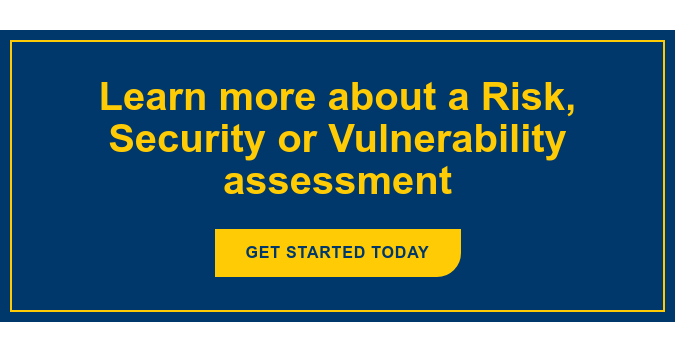With the cloud computing industry skyrocketing (particularly since the start of the COVID-19 pandemic), nearly every savvy business owner has started to put a litany of cloud-based services on their radar.
Okay, radar can’t technically detect clouds, but you get the idea. The point is, cloud technology continues to get more advanced by the day, making the notion of getting cloud security a more enticing option than ever.
However, there are some slight drawbacks to security in the cloud for certain businesses. So when it comes to protecting your data, should you outsource to a cloud security vendor who’ll host and manage your network in an offsite location? Should you maintain an on-premise (onprem) security system in which you keep physical servers in your office? Or, like most organizations, maybe a combination of both (hybrid) is the best option for your business?
When it comes to cloud security vs. on premise vs. hybrid, there’s no clear-cut “best option.” Security needs vary greatly from one situation to another, so you’ll have to consider a torrent of different factors before you make a decision.
Here are the eight most important factors to keep in mind.
1. Data Security
Obviously, protecting your data from villainous eyes is the whole point of investing in security measures in the first place, so you want to know it’s safe and sound. Keeping all your data housed on your own property can give some people peace of mind.
Unfortunately, it’s not quite that simple.
Assuming your data is more secure just because it’s physically in your office is like assuming your cash is safer because you keep it hidden in your sock drawer rather than deposit it at your local bank. Sure, you can check on it more frequently, but there’s a good chance the bank’s safe has a more sophisticated lock than your bedroom door.

On-premise security only works well if you have a killer IT running the show. Otherwise, your data may actually be less secure than it could be when left in the hands of a vendor who is constantly investing in advanced data security tools.
It’s also important to note that most security breaches happen due to employee mistakes, such as falling for phishing scams or using passwords like "mynameispaul." The cloud vs on premise security debate is irrelevant in that area.
Takeaway: Having your servers on-premise doesn’t necessarily make your data more secure.
2. Risk Of Data Loss
The data warehouses where cloud security vendors store your data are generally better protected from things like intruders, fires, and natural disasters than your own office. They can’t afford not to pull out all the stops in that regard.
Takeaway: Your servers are better protected from damage and theft in a cloud security vendor’s warehouse.
3. Upfront Cost
When you create an on-premise data security system, you’ll need to invest heavily in hardware, cooling equipment, software, and installation labor. Cloud security is simply an operational expense; you’ll pay a recurring fee for it as you use it.
Takeaway: Unlike on-premise, cloud security typically doesn’t have an upfront cost.
4. Long-Term Cost
The advantage of investing in all that hardware can eventually pay off, since the cost of your internal IT team maintaining it will likely be less than the fees you’d pay for cloud security on a recurring basis.
The cost of upgrading your equipment every few years (or replacing it when it breaks) can put a pesky little dent in those savings, but if you’re savvy, you might save money in the long run by using an on-premise security system.
Takeaway: Investing in an on-premise system may save you money eventually.
5. Scalability
This is perhaps the biggest point in cloud security’s favor. If a business with on-premise security starts growing rapidly, they’ll face high pressure (and high costs) to add hardware to their infrastructure. But a business owner that uses cloud security will barely burn a calorie when they click to upgrade their subscription.
Takeaway: Cloud security is far more scaling-friendly.
6. Customization

As with anything else, it’s far easier to customize a security system you build and operate yourself. You may face limitations with a cloud security vendor if their packages don’t perfectly suit your needs.
Takeaway: On-premise security is more customizable.
7. Compliance
Some businesses, such as health insurance companies and private schools, have to comply with certain government regulations. Finding a cloud security vendor that caters to these needs can be an added challenge, whereas it’s easy enough to custom-tailor your in-house system to that end.
Takeaway: Compliance is generally simpler with an on-premise system.
8. Use Of Resources
If you have on-premise security, your IT team will need to spend at least some portion of their time focusing on your system. When you use cloud security, you’re effectively outsourcing that labor, which frees up a few additional hours in your IT team’s schedule.
Takeaway: Cloud security takes work off your IT team’s plate.
It Depends
If you were hoping for a more definitive answer, I'm sorry to disappoint. The truth is, you’ll need to think long and hard about whether cloud security, on-premise, or hybrid is the best option for your organization.
But while this article may raise more questions than answers, there’s a bit of good news: managed IT service providers like Marco have the expertise to help you make decisions like this quickly, so you can focus on bigger picture things. We can also help you identify security risks and nip them in the bud.

